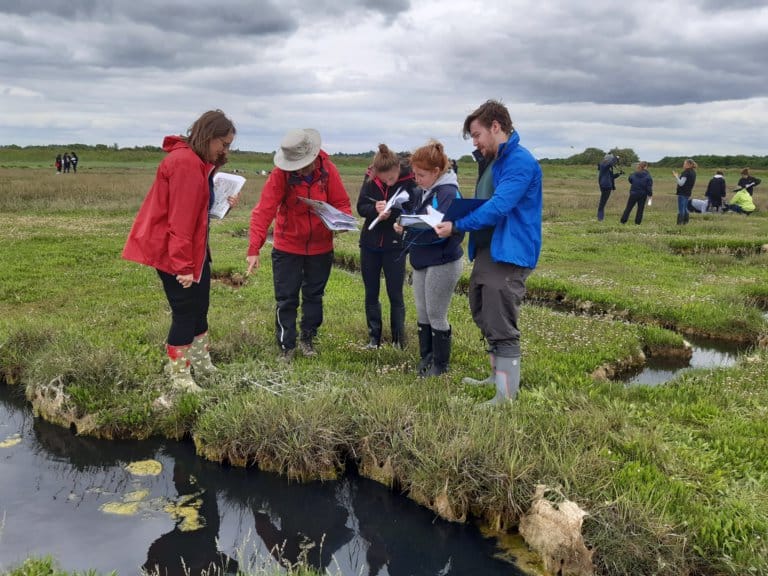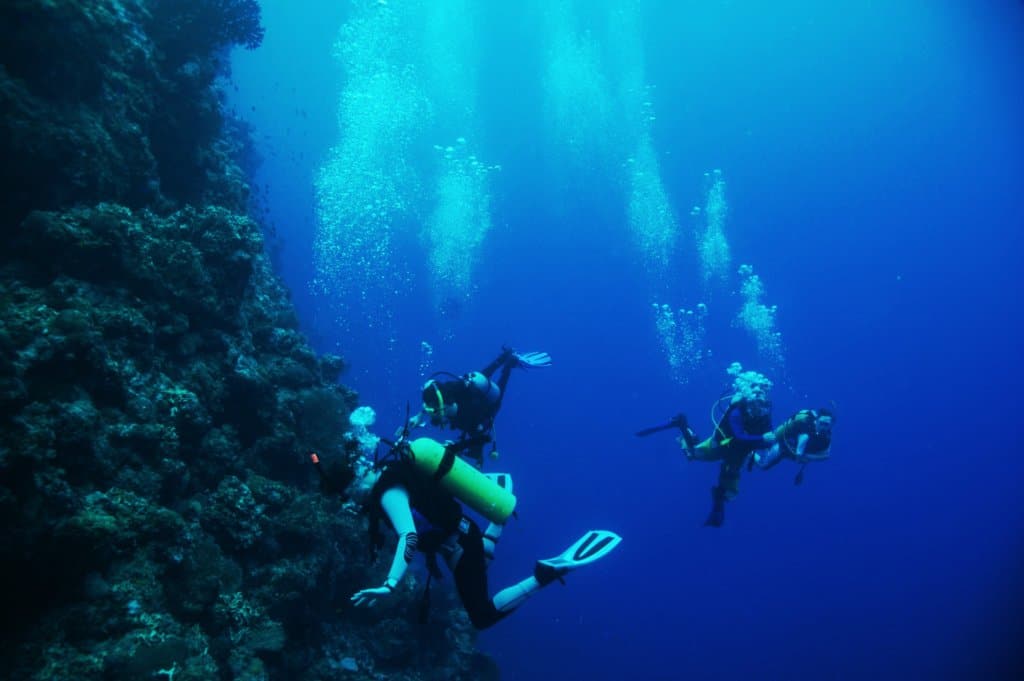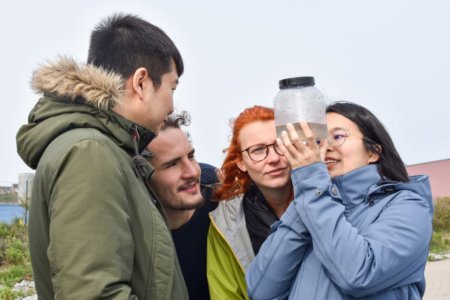
“The science of today is the technology of tomorrow,” said Nobel Prize winner Edward Teller decades ago. This quote still rings true today as science continues to transform and impact various aspects of our lives.
The modern world has gotten where it is thanks to discoveries made in the name of science. However, with threats on the rise, the environmental sciences have never been more important or necessary. On that note, universities across the globe have been constantly adapting and improving curricula to give students the in-depth knowledge and skills needed to provide solutions to some of the most pressing issues of our time.
Four dynamic universities in Europe are actively making waves in the science field while striving to deliver inspiring and transformative degree programmes to their students. To transform the future of science with them, read on to learn more about them first:
University of Essex

At Essex, students have endless opportunities to apply their newfound skills in the field and prepare for the workplace through the university’s research partnerships. Source: University of Essex
Founded in 1964, the University of Essex is working tirelessly to produce a new generation of environmental champions. The range of undergraduate and postgraduate degrees offered by its School of Life Sciences includes BSc Ecology and Environmental Biology, BSc Marine Biology and the innovative new BSc Global Sustainability, as well as MSc Tropical Marine Biology and MSc Marine Science and Sustainable Development at the master’s level.
To achieve world-changing outcomes, education in the School is delivered by world-leading, research-active academics who teach the art of scientific thinking through their own research programmes. The multidisciplinary teaching approaches used across the school’s courses develop practical, transferable and quantitative skills that employers seek from graduates.
At Essex, students are encouraged to master their newfound competencies in state-of-the-art research spaces like newly refurbished aquaria, the STEM Centre, a range of field study sites or in the workplace, through partnerships with the Centre for Environment, Fisheries and Aquaculture Science (CEFAS) or numerous local and international organisations.
With such opportunities on offer, it’s little wonder that the University of Essex attracts talented students from over 130 countries, or that it has achieved recognition for teaching, research strength and international outlook both in the UK and beyond. It ranks 25th for international outlook according to the Times Higher Education World University Rankings 2022, 76th in the global Times Higher Education Impact Rankings 2022 and among the top 25 universities globally for three of the UN Sustainable Development Goals. Where better for international students to evolve into world-changers capable of putting their training into practice? To learn more about the University of Essex, click here.
University of Glasgow

The University of Glasgow is one of the oldest and most reputable universities in the world. Source: University of Glasgow / Facebook
Apart from being the fourth oldest university in the English-speaking world, the University of Glasgow ranks among the world’s top 100 and has been named Scottish University of the year in The Times Higher Education World Rankings. Hence, it has attracted around 35,000 students from the UK and overseas — all of whom were in search of excellence when enrolling to one of the University’s many undergraduate, master’s and research degrees. Two stand out for obvious reasons.
The School of Geographical and Earth Sciences boasts three successful undergraduate programmes that cover Geography, Geology, and Environmental geoscience. Each receives consistently excellent scores in the National Student Survey and are taught by staff who have won several prestigious university awards for teaching.
The School also offers a variety of taught Master programmes. There are five Geomatics programmes: Geoinformation Technology and Cartography; Geomatics & management; Geospatial and Mapping Sciences; Land & Hydrographic Surveying; and Land & Hydrographic surveying with work placement. It also offers programmes in Sustainable Water Environments; Earth futures: Environments, communities, relationships; Environmental futures: sustainable systems; and Human Geography.
Aberystwyth University

Aberystwyth University (AU) offers a culturally enriching experience for international students. Source: Aberystwyth University
First established in 1872, and now celebrating its 150th anniversary, Aberystwyth University is one of the UK universities most dedicated to reducing the effects of humans on the planet. The University declared a climate emergency in 2019 and is committed not only to be carbon neutral, but also carbon replenishing by 2030.
It has taken clear steps to divest from fossil fuels, reduce energy consumption, shift to renewable energy and invest responsibly. Recently, Aber received a green light for the development of a 2.9 million pounds solar farm and is leading on one of the five demonstrator projects that is part of a 30 million pound investment by the UK government to remove greenhouse gases from the atmosphere.
Led by the Faculty of Earth and Life Sciences, the university has a multitude of programmes to choose from to best guide the next generation of climate warriors — such as the BSc in Environmental Earth Science, BSc in Biology and Climate Change, MSc in Environmental Change, Impact and Adaptation, and the MSc in Sustainable and Efficient Food Production.
While many programmes geared towards addressing climate change issues typically fall within the sciences, Aber understands that this isn’t just a challenge for scientists. Therefore, it offers a range of climate change-related degrees across diverse subject areas, spanning the arts and humanities as well as the sciences.
University of Limerick

University of Limerick (UL) is a young, energetic and enterprising university with a proud record of innovation in education and excellence in research and scholarship. Source: University of Limerick
Established in 1972, the University of Limerick (UL) currently offers over 170 internationally-renowned postgraduate programmes across four faculties, including Micro-credentials, Graduate Diplomas, taught and research Masters programmes, structured PhD programmes and Professional Doctorates.
Many are housed within the School of Natural Sciences, which is dedicated to promoting research and education in the physical world of science. It comprises three departments: Chemical Sciences, Biological Sciences, and Physics. Under the Department of Chemical Sciences, the topical subjects of environmental science, environmental management, clean technology, waste management and health and safety are explored.
The Department also plays a leading role within the University’s Bernal Institute, contributing significantly to the Institute’s world-class interdisciplinary research on structured materials. Degree programmes offered include: a Bachelor of Engineering in Chemical and Biochemical Engineering, Bachelor of Science in Biological and Chemical Sciences (Common Entry), Bachelor of Science in Bioscience, Bachelor of Science in Environmental Science, Bachelor of Science in Industrial Biochemistry, Bachelor of Science in Pharmaceutical and Industrial Chemistry, Bachelor of Science in Environmental Science, Bioprocessing MSc, Chemical Engineering (Grad Dip), MSc in Biomolecular Science (online), and the Sustainable Resource Management: Policy and Practice (MSc).
*Some of the institutions featured on this article are commercial partners of Study International










